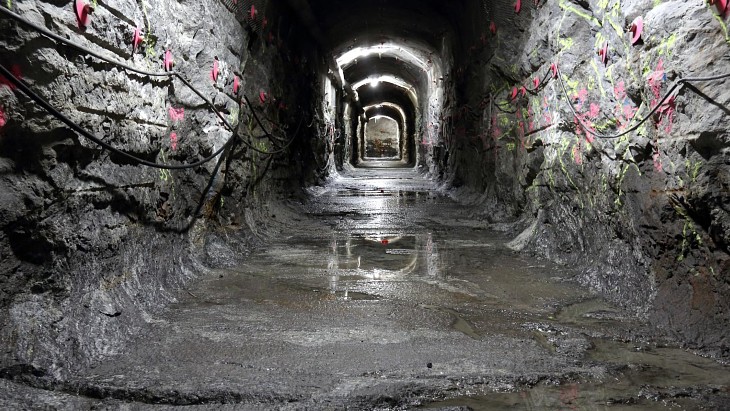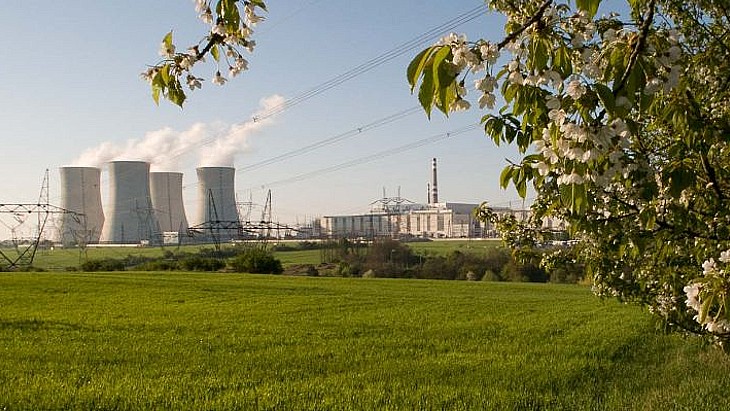"The fact that we're having this panel here at WEC is really a testament to the growing interest in nuclear," session moderator John Gorman, president and CEO of the Canadian Nuclear Association, noted in his introduction. The session - titled Leap of scale or faith: Realising the full potential of nuclear - was held on 24 April during the congress in Rotterdam, the Netherlands.
International Atomic Energy Agency (IAEA) Director General Rafael Mariano Grossi said that although some people refer to a nuclear 'renaissance', he prefers to think of it as "a return to realism".
"We are seeing this realisation that ... ensuring the means to grow and to power our economies ... it would be very difficult, if not simply impossible, to get to that place without nuclear," he said. Grossi said there was a "common understanding" when it comes to energy and the transition to cleaner energy systems - "nuclear has a place. It always had it. We always knew it, but for quite a long time it was challenged, it was contested". He continued: "We have a global consensus that [nuclear] should be accelerated side-by-side with renewables, side-by-side with fossils."
People are now realising that nuclear energy does not emit greenhouse gases and is necessary, along with renewable energies, to reach the target of reaching net-zero by 2050, Laurence Piketty, deputy general administrator of the French Alternative Energies and Atomic Energy Commission (CEA) said. She said France's fleet of 56 power reactors - which provide about 70% of the country's electricity - had helped France maintain electricity prices at a "fair level compared with other European countries" during the energy crisis that began in 2022.
Piketty highlighted the 12-member Nuclear Alliance that is calling on the European Commission to recognise nuclear energy in the EU's energy strategy and relevant policies. "I see the excitement around this European alliance as a clear change in the public perception and European perception of nuclear and an increasing acceptance of it, even in countries where nuclear energy was banned for many years," she said.
Referring to the first Nuclear Energy Summit, held in Brussels in March this year, Grossi said some leaders "very candidly said, 'We have changed. Things have changed. And the reality has changed'. And the people out there are saying it even in countries phasing out nuclear - when you go and ask people on the street they would like to have nuclear."
Grossi said there was a generational change in public opinion about nuclear energy. "Young people are very favourable in general to nuclear," he said. "And what we see is that those having expressed more doubts perhaps belong more to my generation than the new generations that are not carrying this package of doubts and sometimes ideological issues." He added: "We have to address problems squarely, including those having to do with opposition, societal doubt. And in this I think there has been a real change."
Naomi Hirose, vice chair of the World Energy Council and chairman of the Japan Energy Association, said that public opinion about nuclear energy in Japan had been "very, very negative" in the years following the March 2011 accident at the Fukushima Daiichi plant. "But I was very much surprised to see [the results of] a public opinion poll which took place a year and a half ago, the end of 2022," the former CEO of Tokyo Electric Power Company said.
"The question was whether nuclear power plants that have passed safety review from the Nuclear Regulatory Authority should be restarted, 58% of the respondents said they should be restarted. I was honestly very surprised because this same question had been asked many times over the years after the accident and the average positive answer is something like 20-25%. But it suddenly changed up to 58%. This is the public reacting to energy security. It was brought about by the Russian invasion of Ukraine and people are very much scared about the safe, stable supply of electricity in Japan. And the price of electric power jumped up. That's why the people changed [their opinion] dramatically."
"The young generation is so important and in much of the world we see that the young generation is actually pushing for the adoption of nuclear," Gorman said.
Piketty said that nuclear energy was now widely recognised as a valuable source of low-carbon, stable, long-lasting, predictable energy that will enable countries to decarbonise in the long-term. "But, with the electrification of many sectors in the world, starting with mobility, nuclear energy needs to show its potential and its capacity to match this ... we have to take up several challenges. We must develop and deploy a new generation of reactors (including SMRs) in a timely manner."
"We are at the moment, unfortunately, in the international scene seeing conflict, we see tension," said Grossi. "And we see problems. It's not the first time - history is not linear. But when it comes to nuclear, there is a lot of convergence. There is a perception and a conviction that there are many things in which we can cooperate and we see that this pattern is a reflection of that.
"There are still challenges ahead of us and nothing is guaranteed, because if we fail to address and to give the right answers to some of the issues perhaps preventing nuclear to flourish in the way we want, we will still have nuclear, but we will not have the nuclear we need. And this is the gap. We know that nuclear is going to continue, but we also know that we need more nuclear. Are we going to get it, yes or no? This is the question."

.jpg)





_53514_33880.jpg)






